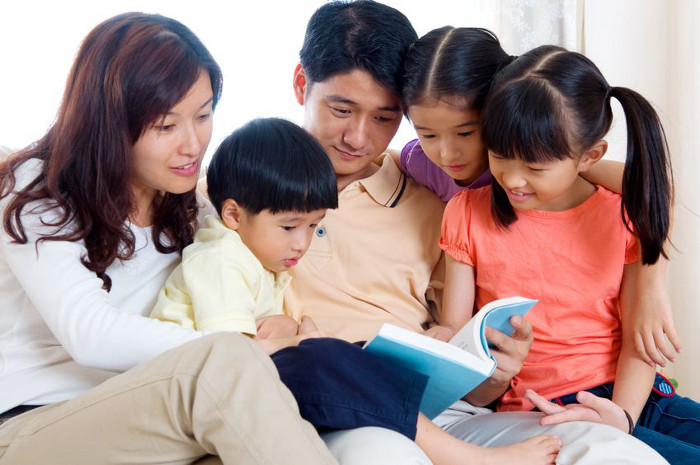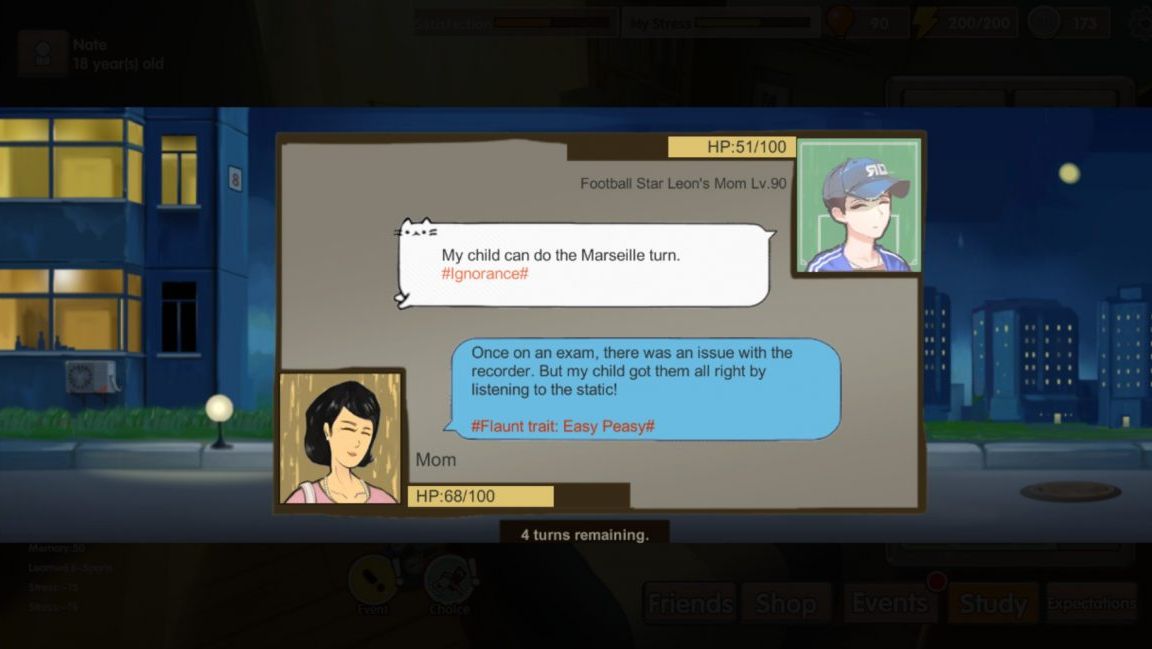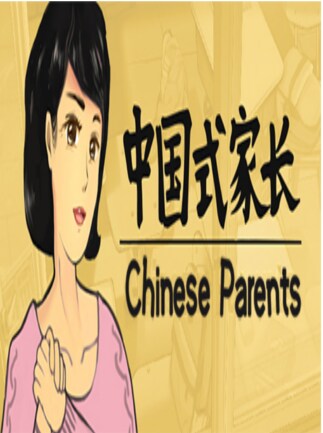Chinese Parents: Life Choices Guide Posted on June 27, 2019 A simple guide that lists the outcomes of each response for the optional choices in game. Introduction The life choices are an optional in game feature that randomly show 3 potential scenarios each with 3 responses to choose from. Chinese Parents for Switch game reviews & Metacritic score: From birth to adult, explore the relationship between children and parents. This is probably the most.
What research says about Chinese kids and why they succeed
© 2011 - 2019 Gwen Dewar, Ph.D., all rights reserved
Why people are interested in traditional Chinese parenting
'Chinese Americans are overrepresented in many of the nation's elite universities' note Yong Zhao and Wei Qiu.
The kids get higher SAT math scores, and are disproportionately represented among U.S. National Merit Scholars (Zhao and Qiu 2009).
Why is this the case? Contrary to popular belief, it’s not because Chinese people enjoy an innate advantage in IQ.
When James Flynn analyzed past studies of achievement and IQ, he found that Chinese attainments could be better explained by environmental factors (Flynn 1991).
So what’s the secret?

Yale law professor Amy Chua says it’s about parenting.
Chinese mothers raise more accomplished, academically successful kids because they are more demanding and strict than Western mothers are.
Is Chua correct?
There is some evidence in her favor. We know, for example, that parents who set high standards tend to have kids who are more successful at school. It’s also clear that Chinese parents tend to spend more time pushing their kids to study, practice, and achieve.
But the devil is in the details, and many critics want to know about the specific parenting practices Chua describes in a controversial piece for the Wall Street Journal, and in her autobiographical book, Battle Hymn of the Tiger Mother.
As I note below, these practices -- which feature the threat of punishment and lots of psychological control -- sound like authoritarian parenting, an approach to child-rearing that is usually not associated with the best academic and emotional child outcomes.
The best child outcomes are usually linked with a different style-- authoritative parenting. It's true for many Westerners, and it's also true for many Chinese. When Chinese kids are raised by authoritative parents, they do as well or better than Chinese kids from authoritarian homes.
So it’s doubtful that Chua’s tactics are as beneficial as she thinks, and recent research bears this out.
Studies Chua's ideas links “tiger parenting” with mixed results. In some cases, children actually experience lower academic achievement (Kim et at 2013).
In other cases, tiger parenting predicts higher achievement, but poorer well-being: Kids are at higher risk foremotional problems (Kim et al 2015; Li and Hein 2019).
And experimental research suggests that kids benefit when parents abandon psychologically controlling tactics, and practice positive parenting instead. When Chinese parents make this switch, their children experience fewer academic problems (Guo et al 2016).
What, then, can explain Chinese achievement? Decades of research suggests that Chinese kids have two big advantages, advantages that have little to do with authoritarianism:
- Parents emphasize effort, not innate ability
- Children's peers support each other when they work hard at school
Effort--and the belief that effort pays off--is a key ingredient to Chinese success. Chua herself makes this point in the Wall Street Journal. She doesn’t let her kids believe they can’t succeed.
So here is an overview of Chua’s controversial claims, and a look at the research on Chinese parenting.
Self-portrait of a Chinese mom
Amy Chua is the daughter of Chinese immigrants to the United States. Her parents, she says, were “extremely strict but extremely loving.” She tried to raise her kids the same way.
What does this mean? Chua provides some specific examples.
For instance, Chua says she never allowed her kids to have a playdate, watch TV, participate in a school play, or choose their own extra-curricular activities. The kids are also not allowed to “get any grade less than an A” or “not be the No. 1 student in every subject except gym and drama.”
When her 7-year-old daughter failed to master a new piece on the piano, Chua drove her relentlessly. “I threatened her with no lunch, no dinner, no Christmas or Hanukkah presents,” Chua writes, “no birthday parties for two, three, four years. When she still kept playing it wrong, I told her she was purposely working herself into a frenzy because she was secretly afraid she couldn't do it. I told her to stop being lazy, cowardly, self-indulgent and pathetic.”
Chua made her daughter work into the night, denying her even a break to go to the bathroom. “The house became a war zone, and I lost my voice yelling, but still there seemed to be only negative progress, and even I began to have doubts.”
Then--at last--the girl made a breakthrough. She mastered the piece, and wanted to play it again and again. And the emotional strife had lifted. That night, the girl crawled into her mother’s bed, and they “snuggled and hugged, cracking each other up. “
To many people, this story is disturbing. Chua’s approach seems harsh and unhelpful.
But Chua got the results. And, Chua notes, the point is this:
Unlike many Western parents who would have backed down, convinced that the child just wasn’t ready or able to master the new piano piece, Chua believed that her child could do it. But she wasn’t going to learn the piece without intense effort, and that effort wasn’t going to happen unless the child was pushed.
What helps kids? To be allowed to choose for themselves, or to be pushed into achievements that will pay off later in life? A more indulgent approach might seem more caring. But, as Chua argues, her parenting style shows a concern for the long-term welfare of her kids.
“The Chinese believe that the best way to protect their children is by preparing them for the future, letting them see what they're capable of, and arming them with skills, work habits and inner confidence that no one can ever take away.”
That doesn’t mean that Chinese parenting is better. As Chua recounts in her book, one of her daughters rebelled, and Chua had to reassess her views. She tells Jeff Yang, '..I'm aware now of the limitations of that model -- that it doesn't incorporate enough choice, that it doesn't account for kids' individual personalities..”
But Chua sticks by her basic premise. If you want to know why Chinese kids succeed, it’s because of the sorts of parenting practices described above.
What does the research say about traditional Chinese parenting?
Viscera Cleanup is a very peculiar videogame indeed. In it, the player assumes the role of a spaceship janitor who also happens to be the only survivor of an alien massacre that happened on the ship. As such, he has to clean up the disaster. The game plays out in first person, as if it were a shooter game. Viscera cleanup detail santa's rampage download free. Buying Viscera Cleanup Detail also gets you our spin-off titles, 'VCD: Shadow Warrior' and 'Santa's Rampage' free! Santa's Rampage comes included in the main game download AND as a standalone copy you can use to connect with others who only own Santa's Rampage. Download Viscera Cleanup Detail. A video game simulation about stopping an alien invasion.
Chua’s claims have caused a stir. Are the parenting tactics she describes truly effective? And if these tactics work, do they work at a cost to the kids? Here’s what the research says.
1. Traditional Chinese parenting has been labeled as “authoritarian” by some researchers.
Authoritarian parenting is a style of child-rearing that emphasizes high standards and a tendency to control kids through shaming, the withdrawal of love, or other punishments. This is distinguished from authoritative parenting, which also emphasizes high standards, but is accompanied by high levels of parental warmth and a commitment to reason with children.
2. When compared with authoritative parenting, authoritarian parenting is linked with lower levels of self-control, more emotional problems, and lower academic performance.


These links have been documented for Western kids raised in North America. They have also been documented for Chinese kids living in Beijing and Taiwan. But there are some exceptions. Studies Hong Kong Chinese (Leung et al 1998) and of Chinese immigrants to North America (Chao 2001) have linked authoritarian parenting with higher school achievement.
3. Researchers like Ruth Chao argue that the authoritarian label doesn’t quite map onto the strict, controlling parenting style of many traditional Chinese.
“Authoritarian” implies that parents are rather cold and distant. But strict Chinese parents enjoy a sense of closeness with their kids. And the kids may interpret their parents’ coercive tactics as evidence that they are loved. This, says Chao, is why some studies have failed to show a link between poor outcomes and authoritarian parenting among Chinese immigrants. Unlike children in Western authoritarian families--children who feel alienated by their parents--the Chinese-American kids feel connected (Chao 1994; Chao 2001).
4. Traditional Chinese parenting has one clear advantage over contemporary Western parenting: Chinese parents--like many other Asian parents--are more likely to emphasize effort over innate talent.
Experiments show that people learn more when they believe that effort, not innate intelligence, is the key to achievement. And other research suggests that Westerners are more likely to assume that a child fails because he lacks innate ability (Stevenson and Lee 1990).
5. Chinese-American kids tend to have peer groups that support achievement.
Studies of adolescents in the United States suggest that some kids pay a “nerd penalty” for studying hard. When these kids perform well at school, they get rejected by their peers. Chinese-Americans are less likely to face this choice between scholastic success and social success. Lawrence Steinberg and his colleagues (1992) wonder if “pro-achievement” peer pressure protects Chinese kids from some of the negative effects of authoritarian parenting.
And what about creativity? Independent thinking skills?
I haven’t found any studies addressing the subject. But some educators in China have expressed concern that traditional Chinese parenting doesn’t foster creativity or divergent thinking (Tobin et al 1991; Zhao 2007). And it seems reasonable to assume that kids won’t develop skills they don’t practice.
As Yong Zhao and Wei Qiu note, it’s a myth that Chinese (and other Asian-American) students are good at everything. Like everyone else, they have their strengths and weaknesses. And these are shaped by training.
So there is no magic here. Just the payoffs for hard work.
Is the controversy justified? It's certainly understandable.
People want to know if authoritarian parenting can sometimes be a good thing. I'm inclined to say not. But in any case, it's clear that there are good things about traditional Chinese parenting--and Chinese culture--that don't have anything to do with authoritarianism. And those are lessons that can benefit us all.

Copyright © 2006-2020 by Gwen Dewar, Ph.D.; all rights reserved.
For educational purposes only. If you suspect you have a medical problem, please see a physician.
References: Traditional Chinese parenting
Chao R. 2001. Dying light / left 4 dead 2. Extending research on the consequences of parentingstyle for Chinese Americans and European Americans. Child Development72: 1832-1843.
Chao R. 1994. Beyond parental control; authoritarian parenting style: Understanding Chinese parenting through the cultural notion of training. ChildDevelopment 45: 1111-1119.
Else-Quest NM, Mineo C, and Higgins A. 2013. Math and scienceattitudes and achievement at the intersection of gender andethnicity. Psychology of Women Quarterly. In press.
Flynn J R. 1991. Asian Americans: Achievement Beyond IQ. LawrenceErlbaum.
Guo M, Morawska A, Sanders MR. 2016. A Randomized Controlled Trialof Group Triple P With Chinese Parents in Mainland China. BehavModif. 40(6):825-851.
Kim SY, Wang Y, Chen Q, Shen Y, Hou Y. 2015. Parent-childacculturation profiles as predictors of Chinese American adolescents'academic trajectories. J Youth Adolesc. 44(6):1263-74
Kim SY, Wang Y, Orozco-Lapray D, Shen Y, and Murtuza M. 2013. Does'Tiger Parenting' Exist? Parenting Profiles of ChineseAmericans and Adolescent Developmental Outcomes. Asian Am J Psychol.1;4(1):7-18.
Chinese Parents Switch
Leung PWL and Kwon KSF. 1998. Parenting Styles, MotivationalOrientations, and Self-Perceived Academic Competence: A MediationalModel. Merrill-Palmer Quarterly.44(1): 1-19.
Li N and Hein S. 2019. Parenting, Autonomy in Learning, andDevelopment During Adolescence in China. New Dir Child Adolesc Dev.(163):67-80
Steinberg L, Lamborn SD, Dornbusch SM, and Darling N. 1992. Impactof parenting practices on adolescent achievement: authoritativeparenting, school involvement, and encouragement to succeed. ChildDev. 63(5):1266-81.
Stevenson HW and Lee SY. 1990. Contexts of achievement: a study ofAmerican, Chinese, and Japanese children. Monogr Soc Res Child Dev.55(1-2):1-123.
Zhao Y. 2007. China and the whole child. Educational Leadership64(8): 70-73.
Chinese Parents
Zhao Y and Qiu W. 2009. How Good Are the Asians? Refuting FourMyths About Asian-American Academic Achievement. Phi Delta Kappan90(5): 338-344.
Chinese Parents Cheat Engine
Content last modified 2/2019
Chinese Parents Corporal Punishment
PRIVACY POLICY